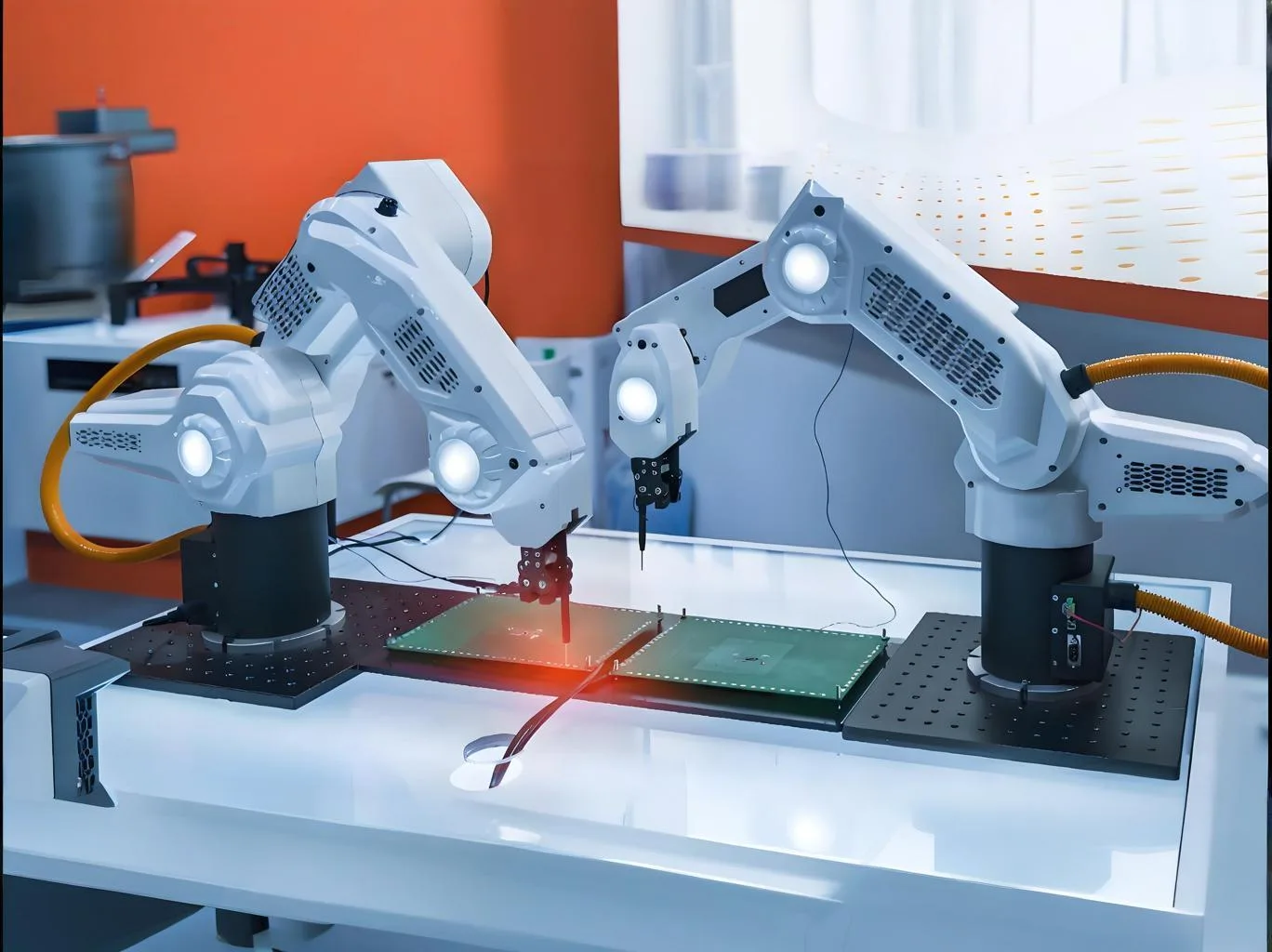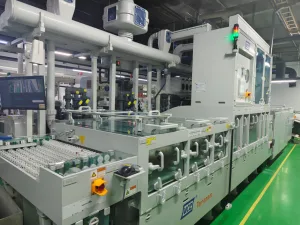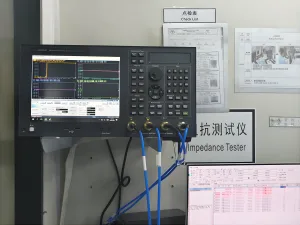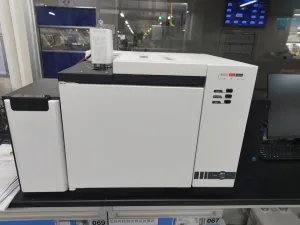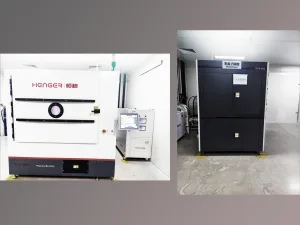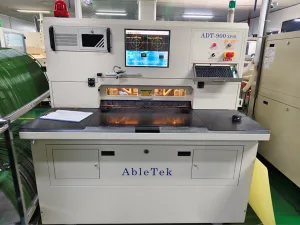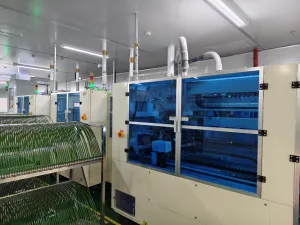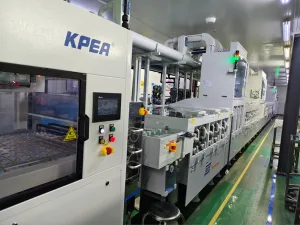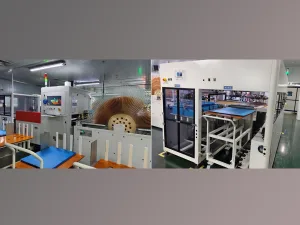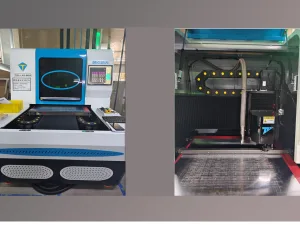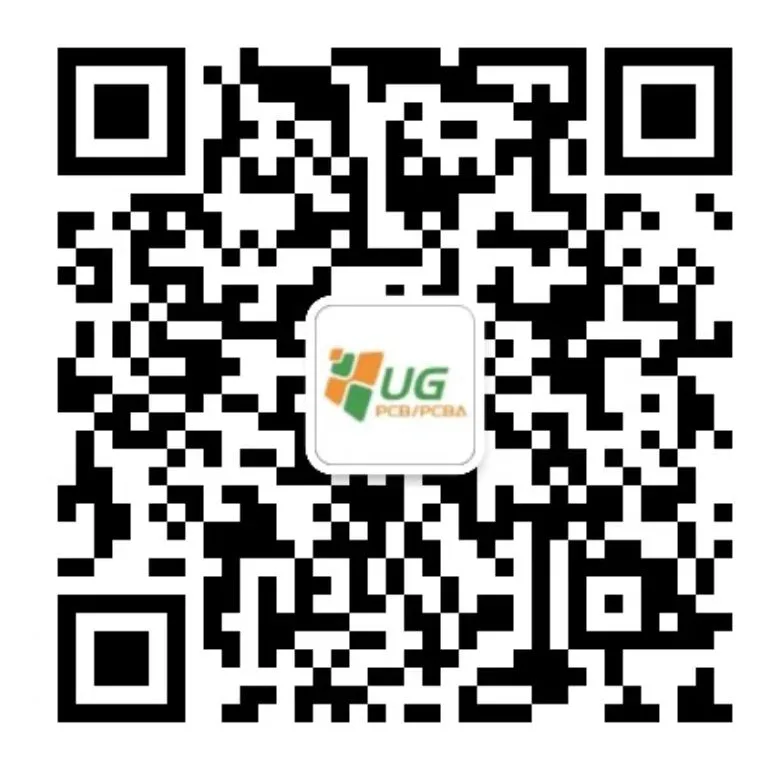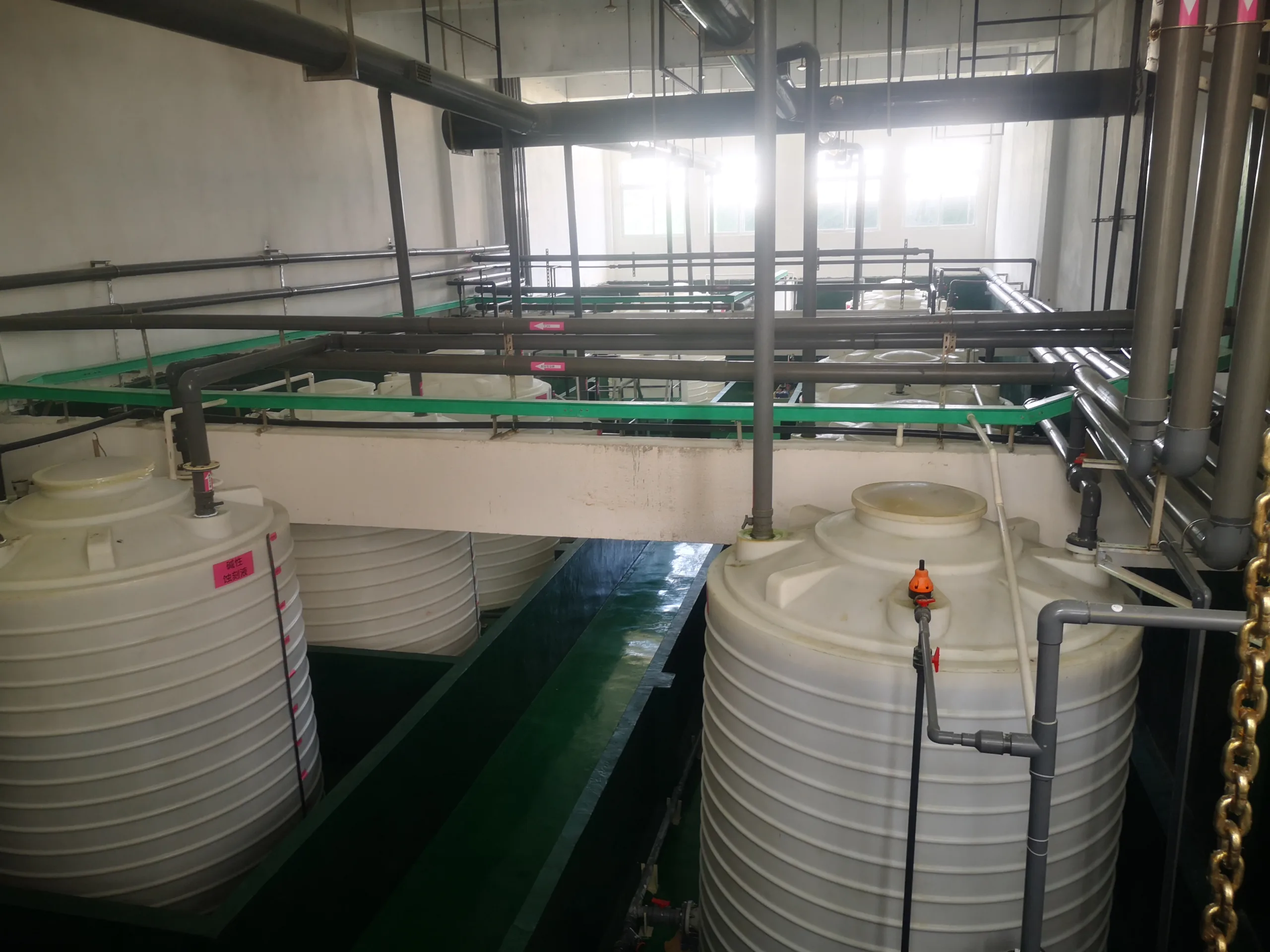
Système de traitement des effluents UGPCB: Setting New Benchmarks for Green Manufacturing in the PCB Industry
Equipment Overview and Core Technology Analysis
UGPCB employs a modular intelligent wastewater treatment system, specifically designed to address the high heavy metal and organic pollution characteristics of the PCB industrie. This system integrates three core technological modules: chemical precipitation, membrane separation, and IoT monitoring. It achieves the following:
-
Heavy metal removal rate ≥ 99.8% (compliant with GB21900-2020 Table 3 normes)
-
CODcr treatment efficiency of 92% (exceeding the “Electronic Industry Pollutant Discharge Standards”)
-
100% taux de récupération du cuivre (achieved through electrodeposition technology for resource recycling)
The system utilizes an IoT-based intelligent control system to monitor over 20 parameters in real time, including pH levels, heavy metal concentration, and flow rate. Data is uploaded to a cloud platform, habilitant:
-
Remote fault diagnosis (response time ≤ 15 minutes)
-
Intelligent optimization of chemical dosing (reducing chemical usage by over 30%)
-
Dynamic energy consumption adjustment (power consumption ≤ 3.5 kWh per ton of water treated)
Environmental Technology Advantages of UGPCB
Closed-Loop Resource Recycling System
-
Wastewater reuse rate of 85%: Achieved through a combination of reverse osmosis (RO) and ultrafiltration (UF) processus, with treated water quality meeting GB/T 19923-2005 standards for industrial water reuse.
-
Metal resource recovery: Annual recovery of 1,200 tons of copper, tin, and other metals, generating economic benefits of 24 million RMB (basé sur 2025 market prices).
IoT-Enabled Intelligent Operation and Maintenance
-
Equipment health prediction: Utilizes vibration sensors and AI algorithms to provide early warnings of potential failures up to 72 hours in advance.
-
Carbon emission management: Integrated carbon footprint calculation module displays real-time carbon emission data during the treatment process.
Certifications and Standard Leadership
-
OIN 14001 Certification du système de gestion environnementale
-
Certification UL (ECOLOGO® Environmental Label Certification)
-
Rohs conforme (meets EU Restrictions on Hazardous Substances Directive)
Environmental Practices in PCBA Production
Dans le PCB (Assemblage de la carte de circuit imprimé) phase, UGPCB has established a lead-free production system:
-
Use of lead-free solder: Employs Sn-Ag-Cu alloy with lead content < 0.1%
-
Exhaust gas treatment system: Combines activated carbon adsorption and catalytic combustion technologies to maintain VOC emissions below 10mg/m³
-
Electrostatic precipitators: Achieve particulate matter capture efficiency ≥ 99.9%
Industry Impact and Social Responsibility
Driving Industry Standard Upgrades
-
Participation in drafting the “China Electronics Circuit Industry Association Environmental Technology Standards”
-
Involvement in establishing energy consumption standards for PCB wastewater treatment (≤ 4.0 kWh per ton of water)
Green Supply Chain Development
Implementation of a traceability platform for PCB waste materials, enabling full-process tracking from raw materials to recycling.
Environmental Benefits Data
-
Annual reduction in emissions: COD 180 tons, ammonia nitrogen 25 tons, heavy metals 3.2 tons
-
Water conservation benefits: Annual reduction of 400,000 cubic meters in freshwater consumption
Future Technology Outlook
UGPCB is currently developing bio-electrochemical coupled treatment technology, with the following anticipated outcomes:
-
40% reduction in treatment costs (target achievement by 2026)
-
Achievement of microelectronic-grade pure water reuse (resistivity ≥ 18 MΩ · cm)
 LOGO UGPCB
LOGO UGPCB
